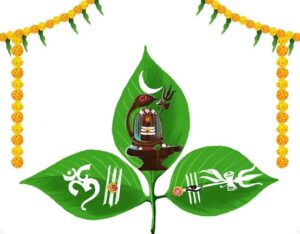Sawan Somwar, also known as Shravan Somvar, is a highly revered religious observance in Hinduism. It refers to the auspicious Mondays that fall during the Hindu month of Shravan, usually corresponding to July-August in the Gregorian calendar. This period holds great significance for Lord Shiva, the Hindu deity associated with destruction and transformation. Devotees across India observe fasting and engage in various rituals to seek Lord Shiva’s blessings. Sawan Somwar is marked by visits to Shiva temples, performing Abhishekam (ritual bathing), and engaging in Kanwar Yatra, a pilgrimage to collect holy water. This article explores the cultural and religious significance of Sawan Somwar, the rituals associated with it, and its importance in Hinduism.

I. The Significance of Sawan Somwar:
Sawan Somwar holds deep spiritual significance for Hindus, particularly devotees of Lord Shiva. The month of Shravan is considered highly auspicious, and observing fasts and rituals during this time is believed to bring numerous blessings and spiritual benefits. Lord Shiva is regarded as the supreme deity in Shaivism, one of the major branches of Hinduism, and is associated with attributes such as destruction, transformation, and renewal.
Devotees believe that by observing fasts on Mondays during Shravan, they can please Lord Shiva and attain his divine grace. It is believed that Lord Shiva is particularly pleased with sincere prayers and offerings made during this time, and his blessings can bring prosperity, peace, and spiritual growth.
II. Rituals and Practices during Sawan Somwar :
A. Fasting: Fasting is a common practice during Sawan Somwar. Devotees abstain from consuming food or water for the entire day or opt for a partial fast, consuming only specific foods. Some devotees observe strict fasts where they refrain from consuming anything until they break their fast after sunset. Fasting is considered a way to purify the body and mind, focusing solely on devotion to Lord Shiva.
B. Temple Visits and Abhishekam:
Visiting Shiva temples is an essential part of Sawan Somwar. Devotees offer prayers and perform Abhishekam, the ritual bathing of the Shiva Linga. They pour holy water, milk, honey, and other sacred substances on the Linga, symbolizing the cleansing and purification of their souls. Devotees also apply sacred ash (vibhuti) on their foreheads, wear rudraksha beads, and chant mantras dedicated to Lord Shiva.
Kanwar Yatra: Kanwar Yatra is a prominent tradition associated with Sawan Somwar, especially in North India. It involves a pilgrimage to collect holy water from sacred rivers like the Ganges or other significant water bodies. Devotees carry Kanwars, portable bamboo or metal structures adorned with flowers and holy symbols, on their shoulders. The Kanwars are filled with the sacred water, and devotees travel back to their local Shiva temples to offer it to the Shiva Linga. This Yatra is seen as an act of devotion and seeking blessings from Lord Shiva.
D. Chanting and Meditation:
During Sawan Somwar, devotees engage in the chanting of sacred mantras and hymns dedicated to Lord Shiva. Popular chants like “Om Namah Shivaya” reverberate in temples and households. Meditation and introspection are also practiced to connect with the divine and cultivate inner peace.
III. Regional Variations and Festivities :
Sawan Somwar is celebrated with great fervor across different regions of India, and variations can be observed in the rituals and festivities.
A. North India: In North India, Sawan Somwar is widely celebrated. The Kanwar Yatra, mentioned earlier, attracts a massive number of devotees. They embark on foot pilgrimages to renowned Shiva temples, often traveling long distances to collect the holy water. The Yatra is accompanied by devotional songs and chanting, creating a festive atmosphere.
B. Western India: In states like Maharashtra and Gujarat, devotees observe fasts and visit temples dedicated to Lord Shiva. Special prayers and rituals are performed, and the Shiva temples are adorned with flowers and lights. Devotees also participate in community gatherings, singing devotional songs, and organizing cultural programs.
C. South India: In South India, Sawan Somwar is celebrated with equal devotion. Devotees visit Shiva temples and offer special prayers and Abhishekam. The temples are beautifully decorated, and cultural events such as classical music and dance performances are organized. Devotees also engage in charity and service activities during this period.
IV. Symbolism and Spiritual Teachings :
Sawan Somwar carries deep symbolism and imparts important spiritual teachings to the devotees.
The month of Shravan signifies the transformative power of Lord Shiva. It is a time for individuals to reflect on their actions, seek forgiveness, and embrace positive changes in their lives. The act of fasting and abstaining from worldly pleasures teaches self-control and discipline. It encourages individuals to look inward, purify their thoughts, and connect with the divine.
The rituals and practices associated with Sawan Somwar remind devotees of the impermanence of the material world. The pouring of holy water during Abhishekam symbolizes the cleansing of impurities and the rejuvenation of the soul. The Kanwar Yatra represents the devotion and determination required in the spiritual journey, emphasizing the importance of surrendering to a higher power.
Sawan Somwar, the observance of Mondays in the month of Shravan, holds immense significance in Hinduism. It is a time when devotees seek Lord Shiva’s blessings through fasting, temple visits, and performing rituals like Abhishekam. The practices associated with Sawan Somwar vary across regions, but the underlying devotion and reverence for Lord Shiva remain consistent.
Sawan Somwar teaches devotees important spiritual lessons, including self-discipline, self-reflection, and surrendering to a higher power. It reminds individuals of the impermanence of worldly pleasures and encourages them to focus on their spiritual growth and well-being.
As devotees immerse themselves in the rituals and festivities of Sawan Somwar, they experience a profound connection with Lord Shiva and seek his divine grace and blessings. Through their devotion and prayers, they aspire to attain inner peace, prosperity, and spiritual enlightenment.
Sawan Somwar is not merely a religious observance; it is a spiritual journey that instills values and deepens the bond between devotees and Lord Shiva. It continues to be celebrated with immense enthusiasm and devotion, keeping the timeless traditions and teachings of Hinduism alive.


 Taxi Booking Chet
Taxi Booking Chet